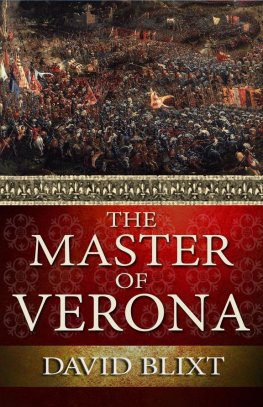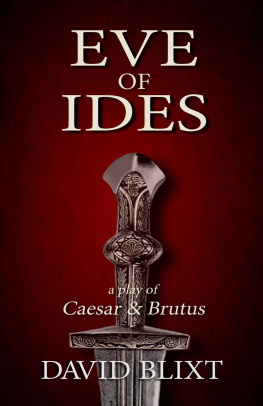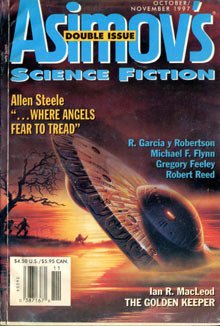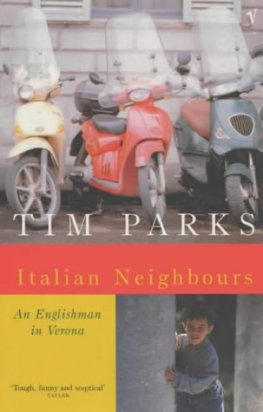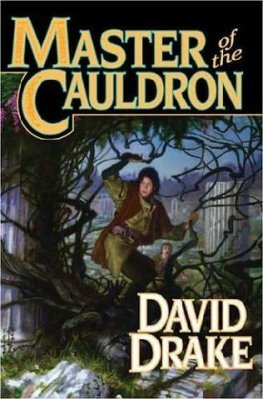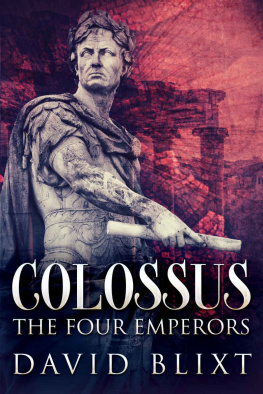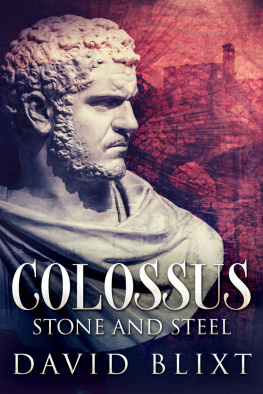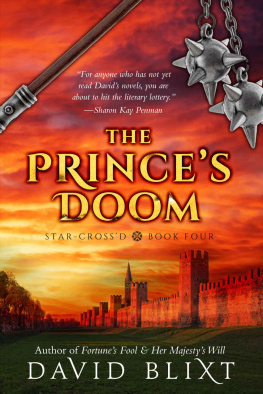David Blixt - The Master of Verona
Here you can read online David Blixt - The Master of Verona full text of the book (entire story) in english for free. Download pdf and epub, get meaning, cover and reviews about this ebook. year: 2012, publisher: Sordelet Ink, genre: Adventure. Description of the work, (preface) as well as reviews are available. Best literature library LitArk.com created for fans of good reading and offers a wide selection of genres:
Romance novel
Science fiction
Adventure
Detective
Science
History
Home and family
Prose
Art
Politics
Computer
Non-fiction
Religion
Business
Children
Humor
Choose a favorite category and find really read worthwhile books. Enjoy immersion in the world of imagination, feel the emotions of the characters or learn something new for yourself, make an fascinating discovery.
- Book:The Master of Verona
- Author:
- Publisher:Sordelet Ink
- Genre:
- Year:2012
- Rating:4 / 5
- Favourites:Add to favourites
- Your mark:
- 80
- 1
- 2
- 3
- 4
- 5
The Master of Verona: summary, description and annotation
We offer to read an annotation, description, summary or preface (depends on what the author of the book "The Master of Verona" wrote himself). If you haven't found the necessary information about the book — write in the comments, we will try to find it.
The Master of Verona — read online for free the complete book (whole text) full work
Below is the text of the book, divided by pages. System saving the place of the last page read, allows you to conveniently read the book "The Master of Verona" online for free, without having to search again every time where you left off. Put a bookmark, and you can go to the page where you finished reading at any time.
Font size:
Interval:
Bookmark:
David Blixt
The Master of Verona
"I shall live in thy heart,
die in thy lap,
and be buried in thy eyes"
Dramatis Personae
* denotes a character recorded by history
denotes a character from Shakespeare
Scaligeri
Francesco 'Cangrande' della Scala* Ruler of Verona
Giovanna of Svevia * Cangrande's wife, great-grand-daughter of Frederick II
Franceschino 'Cecchino' della Scala * nephew to Cangrande
Federigo della Scala * Cangrande's cousin
Alberto II della Scala * Cangrande's nephew, brother of Mastino, b. 1306
Mastino II della Scala * Cangrande's nephew, brother of Alberto, b. 1308
Francesco 'Cesco' della Scala * a bastard, b. 1314
Nogarola
Antonio Nogarola II *- Vicentine nobleman, elder brother to Bailardino
Bailardino Nogarola *- Lord of Vicenza, husband to Cangrande's sister, Katerina
Katerina della Scala *- sister to Cangrande, wife of Bailardino
Bailardetto 'Detto' Nogarola son of Bailardino and Katerina. b. 1315
Alaghieri
Durante 'Dante' Alaghieri * Florentine poet exiled in 1302
Gemma Donati * wife of Dante, living in Florence
Pietro Alaghieri * Dante's heir
Jacopo 'Poco' Alaghieri * Dante's youngest son
Antonia Alaghieri * Dante's daughter
Carrara
Giacomo 'Il Grande' da Carrara * Paduan Lord, uncle to Marsilio
Marsilio da Carrara * nephew of Il Grande
Gianozza della Bella great-niece to Il Grande, cousin to Marsilio
Montecchio
Gargano Montecchio Lord of Montecchio, father of Mariotto and Aurelia
Romeo Mariotto Montecchio son of Gargano
Aurelia Montecchio daughter of Gargano
Capecelatro
Ludovico Capecelatro head of a merchant family from Capua, father of Luigi and Antonio
Luigi Capecelatro eldest son on of Ludovico
Antonio Capecelatro second son of Ludovico
Arnaldo Capecelatro brother to Ludovico
Supporting Characters
Albertino Mussato * Paduan historian-poet
Aventino Fracastoro Personal physician to Cangrande
Benvenito Lemoti Fiance to Aurelia Montecchio
Bishop Francis * Franciscan Bishop, leader of Veronese spiritual growth
Bishop Guelco Bishop of Verona
Ferdinando da Bonaventura Cousin to the Bonaventura heir, Petruchio
Fra Lorenzo Franciscan monk with family in France
Francesco Dandolo * Venetian nobleman, ambassador to Verona
Guglielmo da Castelbarco * Veronese noble, Cangrande's Armourer
Giuseppe Morsicato Knight, Nogarola family doctor
Ignazzio da Palermo Personal astrologer to the Scaligeri
Katerina da Bonaventura Paduan born heiress, daughter of Baptista Minola
Manoello Giudeo * Cangrande's Master of Revels
Massimiliano da Villafranca Constable of Cangrande's palace
Nicolo da Lozzo * Paduan-born knight, changed sides to join Cangrande
Passerino Bonaccolsi * Podest of Mantua, ally to Cangrande
Petruchio da Bonaventura Veronese noble, married to Katerina
Ponzino de' Ponzoni * Cremona-born knight, elected Podest of Padua in 1314
Theodoro of Cadiz Moorish servant of the astrologer Ignazzio da Palermo
Tullio d'Isola aged steward, Grand Butler to Cangrande
Uguccione della Faggiuola * ruler of Lucca, former patron of Dante, friend of Cangrande
Vanni 'Asdente' Scorigiani Paduan knight
Vinciguerra, Count of San Bonifacio * last of an exiled Veronese family
Ziliberto dell' Angelo Cangrande's Master of the Hunt
' A te convien tenere altro viaggio,'
rispuose, poi che lagrimar mi vide,
'se vuo' campar d'esto loco selvaggio:
che questa bestia, per la qual tu gride,
non lascia altrui passar la sua via,
ma tanto lo 'mpedisce che l'uccide;
e ha natura si malvagia e ria,
che mai non empie la bramosa voglia,
e dopo 'l pasto ha liu fame che pria.
Molti son li animali c cui s'ammoglia,
e piu saranno ancora, infin che 'l veltro
verra, che la fara morir con doglia.'
'It is another path you must follow,'
he answered, when he saw me weeping,
'If you would flee this wild and savage place:
For that beast that moves you to cry out
Lets no man pass her way,
But so besets him that she slays him.
Her nature is so vicious and malign
Her greedy appitite is never sated -
After feeding she is hungrier than ever.
Many are the creatures she mates with,
and there will yet be more, until the Greyhound
shall come who'll make her die in pain.'
Dante L'Inferno Canto I, 91-102Prologue
Padua
16 September 1314
Ciolo's nerves jangled in time with his spurs. During the whole ride they hadn't seen a soul. Not on the road, not in the fields. No one at all.
"What does it mean?" asked Girolamo.
"I don't know," said Ciolo.
"Is Padua under siege?"
"I don't know. Let's keep going."
"How will we get in?"
"Keep riding."
"But"
"Think of golden florins."
"I've never been to Florence!"
"Shut up!" hissed Ciolo.
Empty fields gave way to empty suburbs. Some hovels and shacks were burnt out, but more were intact, even new Ciolo saw fresh-cut timber struts and new bricks. Marks of an old siege, not a new one. If there were a present siege, by now he would have heard the sounds of hundreds of men muttering, cheering, singing, impatient horses stamping, the crack and whine of siege machines, the smell of fire and filth.
But the only smells were common night scents. The only sounds were crickets and the occasional goose or dog. There were no tents or firebrands, no bristling spears. The city wasn't under siege. So where the devil was everyone?
Ciolo's skin went cold with a horrible notion. A pest. A pest had come and even now the Paduans were hiding in their homes scratching at scabs and vomiting blood. He glanced at Girolamo but kept his mouth shut. Thinking of the money, he put his dirty hand over his mouth to keep out the bad air and rode slowly on.
They approached the city's north gate, crossing the Ponte Molino, an old Roman bridge the length of fourteen horses whose triple arches spanned the Bacchiglione River. The center arch was supported by two massive stone columns rising from the rippling water. Nearby mills creaked and groaned. Padua depended on the Bacchiglione for everything.
The bridge ended right at the lip of the fortified gate. Ciolo squinted hard. No bodies piled up outside. A good sign. But still there was no one in sight. Ciolo nudged his horse onto the bridge and began to cross it. Girolamo followed.
Halfway across, Ciolo could make out that the gates into the city were open, but dark.
Girolamo said, "I've got a bad feeling about this job."
Suddenly a flame appeared high on the tower before them. A torch. Two more joined it. At the same moment Ciolo heard a human noise. Thousands of voices, cheering. Men, women, children. Bells pealed and musicians played. All the people were inside the city walls, watching for sunset and the lighting of torches.
Sagging in his saddle, Ciolo mopped his brow. "See, it's nothing. A celebr-"
Then he heard thunder as an army of horses poured out of the gate right in front of them. Plumed helmets and shining breastplates reflected light from the brands held high as countless Paduan knights emerged from the city, riding furiously across the Ponte Molino.
Riding right at Ciolo and Girolamo.
Abandoning his horse, Ciolo threw himself from his saddle and ran, arms pumping, to the edge of the bridge. He didn't hesitate, but threw himself into space. For a moment his arms flapped at the air, then he hit the water feet-first, plunging below the surface.
Font size:
Interval:
Bookmark:
Similar books «The Master of Verona»
Look at similar books to The Master of Verona. We have selected literature similar in name and meaning in the hope of providing readers with more options to find new, interesting, not yet read works.
Discussion, reviews of the book The Master of Verona and just readers' own opinions. Leave your comments, write what you think about the work, its meaning or the main characters. Specify what exactly you liked and what you didn't like, and why you think so.

